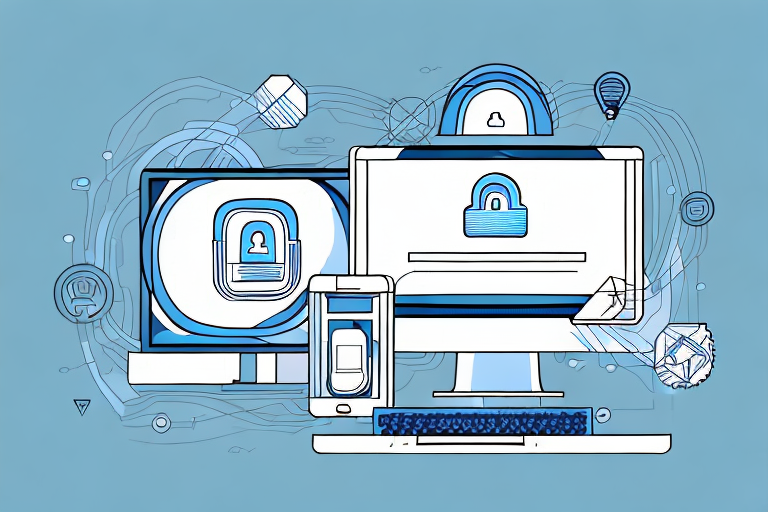Ensuring HIPAA Compliance in Lab Results Delivery
Maintaining patient privacy is paramount in the healthcare industry, particularly during the delivery of lab results. Compliance with the Health Insurance Portability and Accountability Act (HIPAA) ensures that sensitive patient information is handled securely and responsibly. This guide outlines the essential steps healthcare organizations must take to achieve and maintain HIPAA compliance in lab results delivery.
Understanding HIPAA Regulations
HIPAA Privacy Rule
The HIPAA Privacy Rule governs the use and disclosure of protected health information (PHI). It ensures that patients have control over their health information and sets standards for how healthcare providers manage and share this data. Compliance with the Privacy Rule is crucial for protecting patient confidentiality and trust.
HIPAA Security Rule
The HIPAA Security Rule outlines the technical and administrative safeguards necessary to protect electronic PHI (ePHI). This includes measures such as encryption, access controls, and regular security assessments to prevent unauthorized access and data breaches.
HIPAA Breach Notification Rule
The HIPAA Breach Notification Rule requires healthcare organizations to notify affected individuals and the Department of Health and Human Services (HHS) in the event of a data breach involving unsecured PHI. Notifications must be made within 60 days of discovering the breach, as stipulated by [HHS guidelines](https://www.hhs.gov/hipaa/for-professionals/breach-notification/index.html).
Common HIPAA Violations in Lab Results Delivery
Unauthorized Access to Patient Information
Allowing individuals who are not authorized to view a patient's lab results constitutes a significant HIPAA violation. This often results from inadequate access controls and can lead to severe penalties.
Improper Secure Communication
Failure to use secure channels for transmitting patient data, such as unencrypted emails, can expose sensitive information to unauthorized parties.
Lack of Patient Consent
Sharing lab results without obtaining proper patient consent violates HIPAA regulations. Written consent is essential before disseminating PHI to other healthcare providers or third-party entities.
Improper Disposal of Patient Information
Inadequate disposal of physical or electronic records containing PHI, such as not shredding documents or securely deleting digital files, breaches HIPAA standards.
Best Practices for Maintaining HIPAA Compliance
Implement Secure Communication Channels
Use encrypted platforms for transmitting lab results to ensure that PHI remains protected during transit. Solutions like secure messaging systems and patient portals are recommended.
Conduct Regular Risk Assessments
Performing periodic risk assessments helps identify potential security threats and vulnerabilities. Addressing these proactively reduces the likelihood of data breaches.
Employee Training and Education
Regular training sessions on HIPAA regulations and privacy best practices ensure that staff are aware of their responsibilities and the importance of protecting patient information.
Access Control and Monitoring
Limit access to PHI to authorized personnel only. Implement role-based access controls and regularly monitor access logs to detect and prevent unauthorized access.
Choosing the Right Technology for Secure Lab Results Delivery
Selecting appropriate technology is critical for maintaining HIPAA compliance. Opt for solutions that offer robust security features, such as end-to-end encryption, multi-factor authentication, and secure user authentication processes. Additionally, ensure that the chosen technology integrates seamlessly with existing healthcare workflows to enhance efficiency.
Managing Third-Party Vendors and Business Associates
Healthcare organizations often collaborate with third-party vendors for services like lab result processing and data management. It is imperative to ensure that these vendors are HIPAA compliant by:
- Reviewing and verifying their HIPAA compliance certifications.
- Including HIPAA compliance clauses in contracts and Business Associate Agreements (BAAs).
- Conducting regular audits and assessments of their security measures.
Responding to HIPAA Breaches
In the event of a HIPAA breach during lab results delivery, immediate action is required:
- Contain the Breach: Identify and secure the source of the breach to prevent further unauthorized access.
- Notify Affected Parties: Inform affected patients and relevant authorities within the mandated 60-day window.
- Investigate and Mitigate: Conduct a thorough investigation to determine the cause and implement measures to prevent recurrence.
- Review and Update Policies: Assess and update existing security policies and procedures to address identified weaknesses.
For detailed guidance on breach response, refer to the [HHS Breach Notification Rule](https://www.hhs.gov/hipaa/for-professionals/breach-notification/index.html).
The Benefits of Maintaining HIPAA Compliance
Adhering to HIPAA regulations offers numerous advantages beyond legal compliance:
- Enhanced Patient Trust: Demonstrating a commitment to privacy increases patient confidence in your services.
- Reduced Risk of Data Breaches: Implementing strong security measures minimizes the likelihood of unauthorized access.
- Avoidance of Financial Penalties: Compliance helps prevent costly fines and legal actions associated with violations.
- Improved Operational Efficiency: Streamlined processes for handling PHI can lead to better workflow and reduced errors.
Investing in HIPAA compliance ultimately contributes to the overall quality of patient care and the organization's reputation.
Balancing Patient Access with Privacy Concerns
While it is essential to protect patient privacy, healthcare organizations must also facilitate patient access to their own health information. Achieving this balance involves:
- Providing secure patient portals where individuals can view their lab results.
- Implementing verification steps, such as requiring a password or PIN, to access personal health information.
- Ensuring that patients are informed about their rights to access and manage their health data.
By offering secure and user-friendly access options, organizations can empower patients while upholding privacy standards.
Conclusion
Ensuring HIPAA compliance in lab results delivery is critical for protecting patient privacy and maintaining trust within the healthcare system. By understanding HIPAA regulations, implementing best practices, utilizing secure technologies, and fostering a culture of compliance, healthcare organizations can effectively manage sensitive information and avoid the severe consequences of non-compliance. Prioritizing HIPAA adherence not only safeguards patient data but also enhances the overall quality and reliability of healthcare services.






















